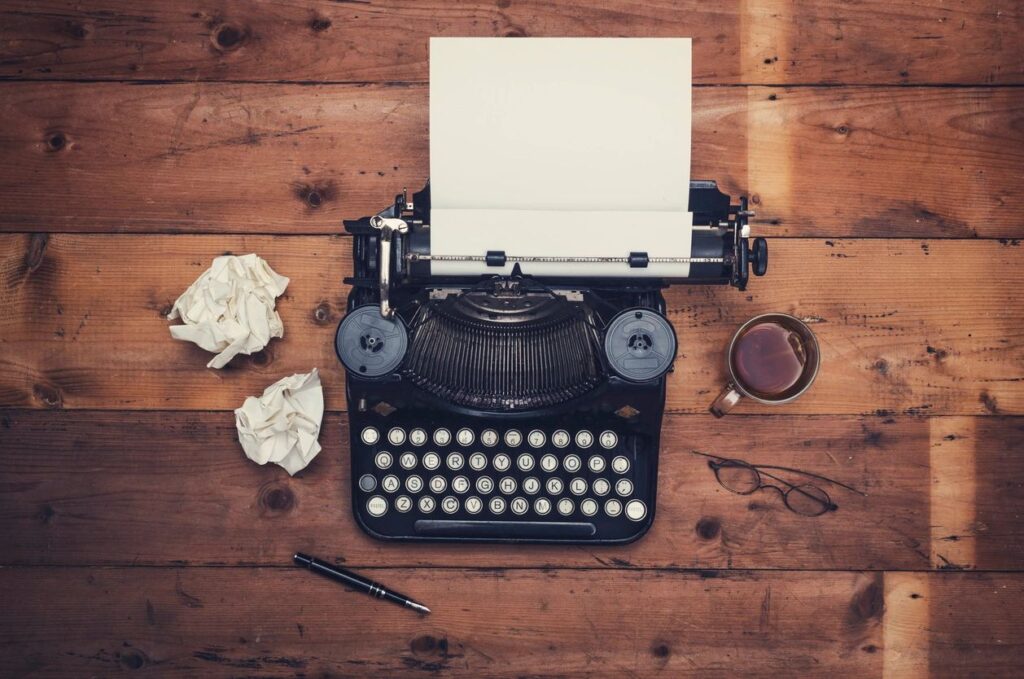“Start writing, no matter what. The water does not flow until the faucet is turned on.” – Louis L’Amour
Even on a normal day, writing can be a difficult endeavor, bringing up all sorts of insecurities, resistance and anxiety. For a graduate student working on a Ph.D. dissertation, this can be compounded by additional stressors related to performing in an academic environment on limited timelines.
On an abnormal day (like say, during a worldwide pandemic), writing can feel almost impossible. As though you are wading through a murky stream without being able to see the bottom or what lies ahead.
Any existing writing issues are compounded by a globalized feeling of near-constant worry. How can I write when the world is turned upside down? What is it that I am really trying to say? Why write when there are so many other things I need to think about right now? It’s even harder to focus than before.
But what I propose is this: NOW may be the very best time to write. Here’s why:
Writing improves mental health.
The act of putting pen to paper (or fingers to keyboard) is therapeutic and clarifying. Not only does writing, a powerful form of expression, naturally reduce stress but it helps to focus our minds on the topic at hand. (Rather than the sky falling down.)
According to strategist Gregory Ciotti:
“Writing gives form to your ideas and gets them out of your head, freeing up bandwidth and preventing you from crashing your browser like a late night downward spiral on Wikipedia.”
Or, in the words of writing guru and author Julia Cameron, “We are miserable not because we are neurotic but because we are creative and not functioning in our creativity.” Just the act of getting the pen back to page can effectively help us move us out of angst and back into focused self.
For ideas on working through perfectionism, check this post.
Writing something, anything, can be an accomplishment.
One would like to believe that with all this spare time on our hands, we’d complete all of those nagging things on our to-do list. Instead, we’re stuck in a state of fear and confusion, unsure how to proceed. With so much free-floating anxiety going around, it can feel impossible to take on a serious project.
The takeaway? Working on small sections of your dissertation provides a sense of completion that helps with well-being and confidence. But keep it small so you actually do it. Choose the section that most interests you right now, even if it’s out of sequence.
Check your notes and references on that part to get started and then just let your writing flow. Silence the inner critic and just enjoy engaging again with your project. Set the timer for 15 minutes of writing, congratulate yourself, repeat.
Channel it.
You chose your dissertation topic for a reason: ideally, it means something deep and powerful to you. Reignite the passion by first simply spending some time journaling about its significance for you.
Remind yourself why you chose this topic: why is it important to you personally and professionally? How will your project help improve your field, fill the gap, make life better – by being pushed out into the world? (Because it will.) By channeling your powerful feelings around the “why” through journaling, you provide a healthy outlet for a lot of pent-up feelings and essentially create a writing “bridge” back into your dissertation.
Onward.
Yes, writing can be challenging, especially during complicated times. But think of it this way: it’s also one of the most powerful forms of expression we possess. Tap into it as a form of self-care and much-needed structure.
See where your writing takes you.
It could take you somewhere surprising. And you can always revise it later, making it more coherent and tying it in more effectively. A friend of mine who was a very good artist said that, at the beginning of any project, she just followed her pencil. So follow your loose thoughts with your pen on paper or your fingers on the keyboard. It will be an adventure to see where the journey takes you in these undeniably surreal shut-in days.

